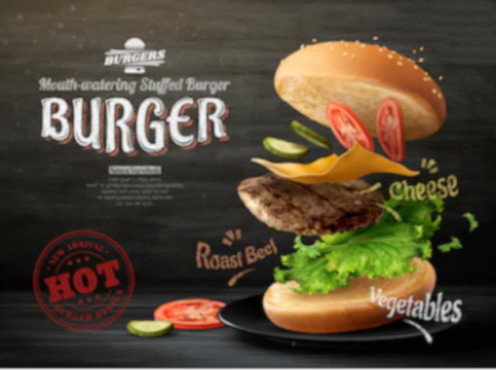- HubPages»
- Business and Employment»
- Small Businesses & Entrepreneurs»
- Mail Order & Internet/Web Businesses
Website Marketing 101

Number of Websites on the Internet
So, you finally got around to building that website you’ve been planning to build for years. But now you’re faced with the problem of how to get the people who need to know you’ve built it to go to your site. The truth is, most people have no clue about what it takes (or how much work is involved) in creating and marketing a website to the point of success (as defined by a business/marketing strategy).
If this sounds like you, maybe it will help to know you’re not alone. Thousands of people publish websites every day, and it’s only after they’ve built them that most realize having a site is only half the battle. Even though I have a PhD specializing in marketing, and even though I study website marketing topics for the purpose of staying up-to-date in my knowledge, I still have to work hard to put into action techniques I learn in order to market my own websites. Figuring out how to get people to actually visit any site is a real conundrum, and it’s a common problem shared by all website owners. Even owners who have a good amount of “traffic” (what website visitors are called), are always searching for new or different ways to increase the number of visitors coming to their site. Why? Because a site that is “hot” today could be “not hot” as soon as tomorrow.
According to Netcraft, as of August, 2020, there were:
- Worldwide, 4.54 billion internet users.
- About 200 million active websites.
- More than 1.5 billion inactive websites on the internet.
- When it comes to the world’s online population, the U.S. represents only 8.2%.
- 59.3% of all websites are written in English.
- GoDaddy has the largest market share with more than 1.5 million domains.
- 56.6 billion web pages are indexed through Google.
Kevin Kelly, one of the founders of Wired magazine, once said there are at least a trillion Web pages in existence. However, according to askwonder.com, there could be as many as 180 quadrillion web pages on the internet, and the number of pages varies. There are both indexed and non-indexed pages. Non-indexed pages, the fastest growing section of the Internet, are called the Deep Web, and search engines cannot pick up these pages.That means Google can search only 1 in 3,000 web pages. With numbers like the ones I’ve just mentioned to contend with, it’s no wonder that many website owners are stressing out while trying to come up with ways to drive visitors to their sites.

The good news is you are not in competition with all the sites on the Web (whew!). The not-so-good news is you are competing with some of them, and, most importantly, you’re competing for the time and the interest of millions of Web visitors. Because this is true, you have to work diligently and consistently to keep the visitors you have while regularly attracting new ones.
Here are some tips representing effective methods I and others have used with success. The key word in my last sentence is “used.” Remember, there is no “magic bullet” involved in driving traffic to your site. If you don’t work hard to implement these or other traffic-driving suggestions or advice, then there’s no possible way they can help you.
Online Website Marketing Tactics
The online environment is ideal for driving traffic to websites because people who are online reading comments you’ve left somewhere are literally just a mouse click or two away from a visit to your URL. Here are several tried-and-true online methods you can use.
Join and Participate in Social Networks. Facebook, Youtube, WhatsApp, Twitter, WeChat, Instagram, Tumblr, LinkedIn—all still considered as “hot” social media sites, all are thriving. As of 2020, youtube.com users watch a billion hours of video on the social media site/platform every day. The same research says that Facebook is the biggest social media site around, used by more than two billion people every month, and more than 65 million businesses using it while actively promoting their business. Instagram has more than one billion MAUs (monthly active users), and Twitter has about 330,000,000 MAUs. In case these statistics aren’t enough to convince you of the “hotness” of social network marketing, as of 2020, according to the website huffpost.com, if Facebook were a country, it would be the largest country in the world with a population of around 1.39 billion (more than China, the world's most highly populated country, with 1.36 billion people).

Leave Comments on Relevant Blogs. Even though some are predicting that blogs are on the decline in their popularity, many are still quite viable. You should look for and visit blogs that have something to do with the content of your website (make sure there is at least a “remote” connection between the blogs you pick and the content/topics on your site). If the blog’s content is related to your site’s content in some way, then you should be able to find something there that is of interest to you. Join in ongoing conversations, or make comments to try to start a new conversation while saying something related to your website. Do your best to write in a way that is engaging, insightful, or thought-provoking, so that people will want to talk to you and learn more about you and what you do.
Make sure your comments are always relevant to the blog’s readers. For example, my website (now under construction) is primarily about my collection of romantic fiction novels. Since my novels feature African Americans in leading roles as heroines and heroes, I visit blogs targeting African Americans. But, since topics related to relationships and romance hold universal interest among people of all racial and ethnic backgrounds, once my website is active, I plan to begin visiting, once again, and making comments on a variety of different blogs. Any blog with content related to relationships and romance, or those of interest to readers of romantic fiction in general, are the primary type I will visit regularly and will sometimes leave comments on them.
Visit and Leave Messages on Message Boards. You might think this tactic sounds “old-fashioned,” as in “Who visits message boards in this day and age?” But, even though message boards (Internet forums where people go to post a comment or join in “threaded” conversations on a particular topic) seem archaic since they’ve been around about as long as the Internet has existed, understand that they’ve managed to survive for a reason. There are millions of them, they cover just about every conceivable topic, and thousands of people still visit them every day. Some offer opportunities to give advice, so if you have some to offer, message boards can provide you with a chance to be heard by people needing to learn what you already know.
Get your website listed in free directory listings. Do a search in Google or other search engines to find free online directories that will allow you to place a listing for your website and what you have to offer. For example, sites like SoMuch.com will allow you to list your URL and to include a description of it, for free.

Write/create an eBook related to your website content, and then give it away—for free. It doesn’t have to be lengthy, it doesn’t have to cost a lot to create it, and it can be used as marketing tool by linking every page of your eBook to your website. So why not create your own? Think about your website and its content. What are you qualified to be an “expert” on? What is something you know about, that others might want/need to learn? Be sure to use key search words on your pages as you create your eBook. After you create it, encourage people to give it away for you. Ask them share your eBook with their friends and acquaintances because sharing will help drive traffic back to your website. You can also write a press release about your eBook and send it out using free press release sites (just Google “free press release sites” to find these). You can also use online storefronts, such as Amazon’s Kindle Direct Publishing, to list your eBook for free.
Write and offer free informative, helpful articles. Make sure the articles you write are of interest to the people you want to visit your site, and then place them on your website. This is a good way to reward existing customers as well as to attract new ones. Once people know you offer free and helpful articles they will come to your site to read them. Keep in mind searchable key words and phrases when you are writing these articles to make them “search engine” friendly. This will help to increase the number of organic visits to your website from search engines.
Off-the-Internet Website Marketing Tactics
What about the people who are not online? What are some offline website marketing tactics? How do you reach people with your message when they're going about their daily activities? Following are several methods you can consider to reach your target customers offline. In addition, you should do your best to come up with, on your own, other low-cost and no-cost ways to reach the people you want to pay a visit to your website.
Make and distribute your own flyers/posters. Pin up and hand out flyers and/or posters with information about your website. Look for boards where you can place notices. Sometimes noticeboards are located in community centers, recreation or work-out centers, at schools, apartment complexes, and even grocery stores, among many other places. Enlist family and friends to help you scour your town or city looking for places where you can leave a flyer or a poster.

Advertise in local newspapers. Some local newspapers, especially the ones that are free, might have low-cost ad space. Check to find out, and, if you can afford it, buy ad space and place an advertisement about your website and what you have to offer potential local customers.You could even consider using your ad to run a local competition where the prize offered could be either a service you could perform using your expertise, or you could allow locals to win items you own and want to get rid of (such as collections of old CDs or video games, “gently-used” furniture, art, or even books).
Create tools and/or handouts to be seen or given away offline. Put your URL on T-shirts, caps/hats, hoodies, or even coffee mugs for you and members of your family (and/or friends) to wear/use. Or, create printable items such as bumper stickers, banners, and/or business cards (all can be made at Kinko’s) with your website name, logo, that you can hand out or leave lying around at malls or other places for anyone to find. Better still, look for places and leave them in places where you know members of your target customers are known to hang out.
Find ways to create for your business new networking opportunities. Are you able to become a volunteer for a large charity/non-profit organization? Are there for-profit companies offering volunteer opportunities? Getting out and getting around in your community might allow you to uncover hidden marketing support and opportunities you never knew existed.
© 2012 Sallie B Middlebrook PhD








